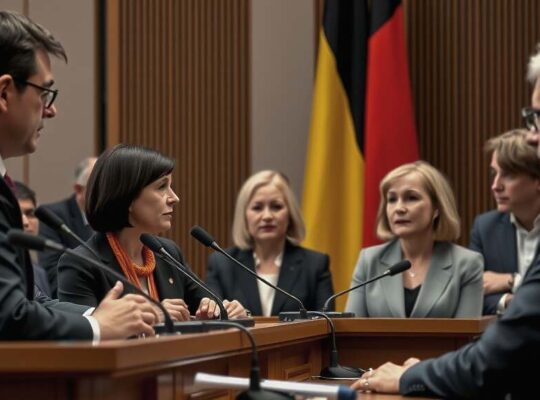The German government’s proposed “Act to Strengthen Occupational Pensions” is drawing sharp criticism from the powerful IG Metall trade union, who argue the plan creates a further disparity between state-insured workers and those with alternative pension arrangements. The legislation, intended to bolster occupational pension schemes, introduces a change that restricts the ability for individuals covered by the statutory pension system to accumulate additional pension points through lump-sum payments – a benefit now limited to those aged 50 and over.
IG Metall’s Head of Social Affairs, Hans-Jürgen Urban, voiced his concerns to the Handelsblatt, arguing that the government is missing a crucial opportunity to address a persistent inequality. The current system allows civil servants, freelancers and the self-employed – who are not subject to the statutory pension scheme – to make unlimited supplementary payments from the age of 16, a privilege unavailable to those relying on the state system.
“Instead of closing this gap in fairness, the changes planned by the cabinet are heading in the wrong direction” Urban stated. He underscored the inherent inequity, highlighting the advantages afforded to those outside the statutory system while restricting options for those who are mandated to participate in it.
The union believes a more equitable system would involve simple and clear regulations applicable to all groups, ensuring transparency for participants, minimizing administrative burden on the pension insurance body and guaranteeing equal treatment across all professional categories. Urban suggested this would facilitate genuine bureaucratic reduction, a stated goal of the government, rather than exacerbating existing inequalities through restrictive measures. The controversy highlights a broader debate regarding the fairness and long-term viability of Germany’s pension system and the balancing act between incentivizing occupational pension schemes and maintaining social equity.












